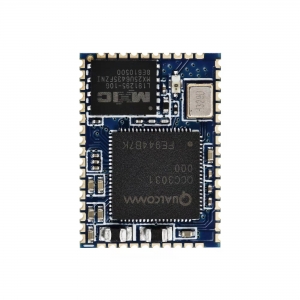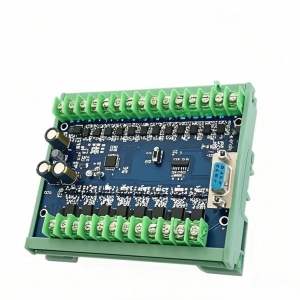Standardizing the order of e-commerce and strengthening the protection of intellectual property rights
- 2020-07-18 11:37:00
- admin Original
- 1922
On June 19, 2018, the draft of China's e-commerce law was submitted to the third session of the 13th NPC Standing Committee for deliberation. It is worth mentioning that, compared with the second review draft, the articles related to intellectual property rights increase the obligations of e-commerce platform.
Give the platform more obligations
The second draft of the e-commerce law has made detailed provisions on the intellectual property issues involving e-commerce platforms. The third draft does not have much modification, but only modifies or adds two new relevant provisions: one is related to the control of counterfeit and shoddy products; the other is that the operators of e-commerce platform shall not abuse their dominant market position to exclude or restrict competition.
In the process of soliciting opinions on the draft of e-commerce law, some departments and the public suggested that measures should be taken in time to further clarify and refine their responsibilities to consumers. For this reason, the third review of the draft further clarifies and refines the responsibility for the failure to take timely measures for the sales of counterfeit and shoddy goods on the e-commerce platform, and stipulates that the e-commerce platform operators know or should know that the commodities sold or services provided by the operators in the platform do not meet the requirements of personal and property safety, or the consumers' life and health are concerned If a product or service fails to fulfill the Qualification Examination Obligation of the operator on the platform, and fails to fulfill the safety guarantee obligation to the consumer, it shall bear joint and several liability with the operator in the platform.
In recent years, in the network promotion activities, some e-commerce platforms, in order to maximize their own interests, require the settled businesses to participate in the promotion only on one platform, which is commonly referred to as "one out of two" in the industry. In view of the "one out of two" behavior of e-commerce operators abusing their dominant position in the market, the third review of the draft clearly stipulates that if an e-commerce operator has a dominant market position due to its technical advantages, number of users, control ability over related industries and other operators' dependence on the e-commerce operator in the transaction, they shall not abuse the dominant market position, Eliminate and restrict competition. E-commerce platform operators shall not use service agreements, trading rules and technologies to impose unreasonable restrictions or conditions on the transactions, transaction prices and transactions with other operators, or charge unreasonable fees.
Work together to strengthen protection
Although the e-commerce law is still under consideration, the judicial and intellectual property rights protection in the field of e-commerce have achieved certain results, the infringement of intellectual property rights has been effectively curbed, and the order of e-commerce is gradually standardized and orderly.
In recent years, the patent administrative department has actively constructed the working pattern of "strict protection, great protection, quick protection and same protection", and effectively curbed the infringement in the field of e-commerce through patent administrative law enforcement.
For example, as a more developed province of e-commerce industry in China, Zhejiang Intellectual Property Office cooperated with other cooperative provinces and cities to strengthen the investigation and punishment of counterfeiting source, repeated infringement, malicious infringement and group infringement, which effectively solved the difficulties of cross provincial enforcement of patent infringement in the e-commerce field and the pain points of online and offline separation.
In addition to Zhejiang Province's increasing patent enforcement efforts in the field of e-commerce, provinces and cities also actively carry out cross regional joint law enforcement. At the 2017 Guangdong Intellectual Property fair, representatives from 19 cities and cities with strong intellectual property rights jointly signed the Declaration on joint enforcement of intellectual property rights in the field of e-commerce, aiming to broaden the channels of joint law enforcement.
At present, China's e-commerce order is gradually standardized and orderly. On the one hand, this effect benefits from the strict law enforcement of judicial and administrative departments, on the other hand, it benefits from the self-conscious and standardized operation of e-commerce operators. It can be predicted that with the implementation of the e-commerce law, the protection of intellectual property rights in the field of e-commerce will be stricter, and the development of e-commerce industry will be more healthy.
-
About
Founded in 2013,more than ten years of development history and technology precipitation,gathered numbers of senior engineers with rich experience in hardware and embedded software design. Advanced electronic circuit design,PCBA design,embedded system development,intelligent controller,wireless Bluetooth solution, IOT and other technical services.
-
Fast navigation
IOT Solutions Enterprise Announcement Smart Home Living Enterprise News Intelligent Toy Solution Original Project Energy Saving & Eco-friendly Industry information -
Contact
Tel.:(86)755-29653709
Fax:(86)755-29653709-803
E-mail:info@easy-core.com
Address:4/F, Bldg.B, Hongxinbao IZ.,
No.6 Feimei RD, Pingshan Dist., Shenzhen.




